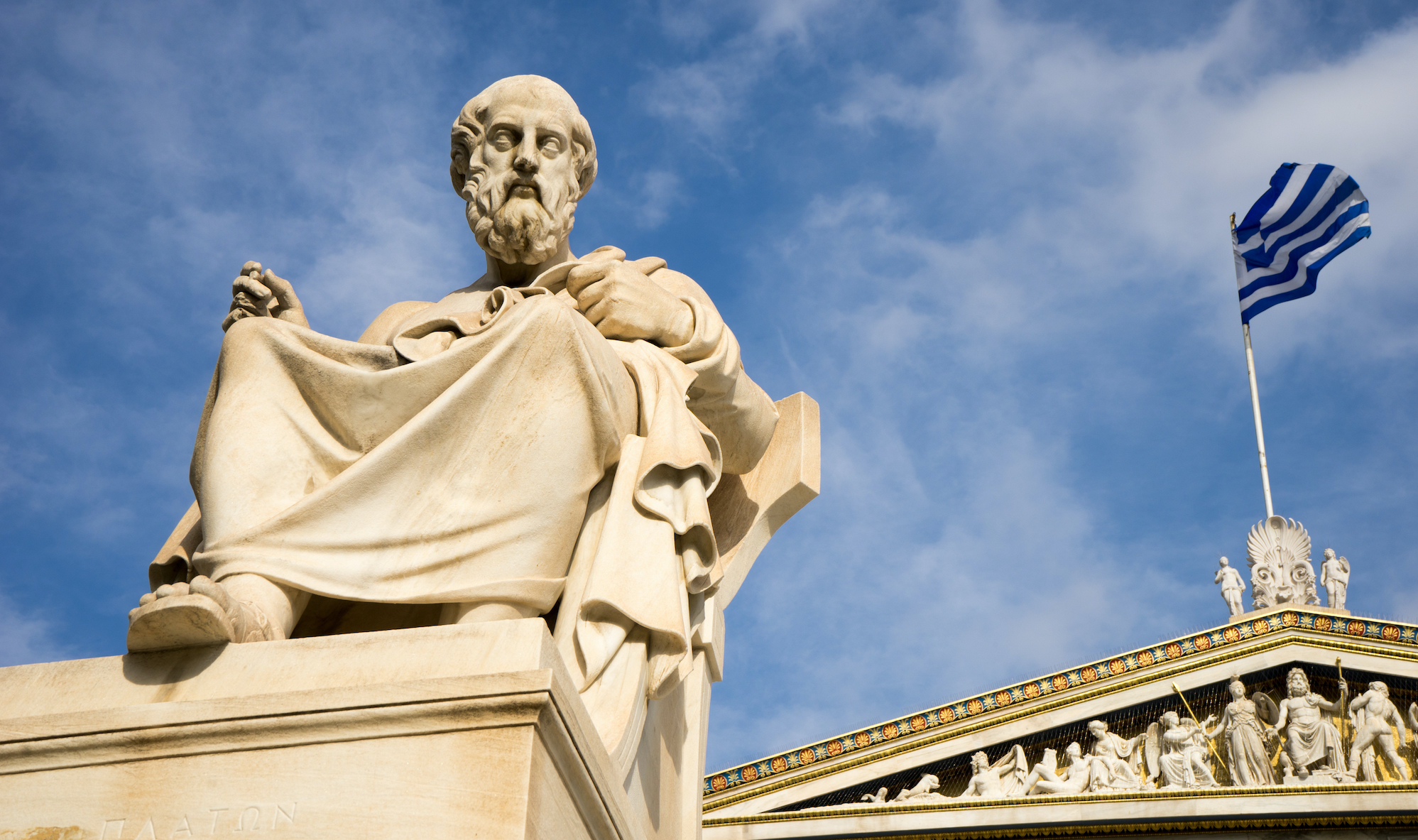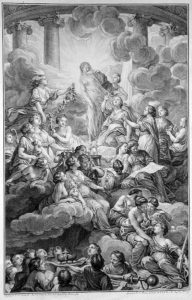I once heard the story of a woman who always cut off the end piece of her roast before baking it. When her husband asked why, she responded that her mother had always done that. Curious, she called her mom to ask the same question, and she answered that her mom had always done that. Upon asking the matriarch why the family recipe for roast included cutting off the end piece before baking, she replied, “Because my pan was too small to fit the entire roast!” This story stuck with me my entire life and still prompts me to always make sure I know WHY I am doing the things I do. And today I ask:
Do we really know the reasoning behind WHY we do education the way we do it here in America?
To understand the WHY behind our educational system, we must go all the way back to its conception and then follow the trail from there. Today we will look at the first two stops along that journey:
- The influence of Baal worship
- The influence of Greek philosophers
As we discussed in the last Education Mountain blog…
Discovering The Root Of American Education
Baal worship has always meant putting faith and trust in something that is made by man’s own hands as an attempt to create a deity apart from the one true God. In Biblical times, people first worshipped Baal, and then they would offer their children as sacrifices to be burned to the false god Molech. Today we have removed God from schools, worshipped false gods and then offered our children as sacrifices on that false god’s altar. In our American schools, we have welcomed the worship of Baal by removing God from every aspect of education. We removed prayer, Bible reading, and any reference to God. Instead of lifting up God as the one true God, we have placed all religions on equal footing.
”They set up their abominations in the house that is called by My name, to defile it. They built the high places of Baal in the valley of the Son of Hinnom, to offer up their sons and daughters to Molech, though I did not command them, nor did it enter into My mind, that they should do this abomination, to cause Judah to sin.
Jeremiah, 32:34-35, ESV
This very same Baal that Jeremiah mentions was later worshipped by Greek philosophers. Nancy Huff, author of Taking the Mountain of Education: A Strategic Prayer Guide to Transform American Schools, notes that Greek philosophers had internalized Baal worship and that Baal appeared in the form of different gods in Greek culture.
The Greeks gave us the very foundation of the reasoning of the human mind apart from God, and it is easy to see the connection of our educational system in America to these Greek philosophers. They ushered in the age of logic or human reason, and it was separate from any inspiration from the Spirit. The men of Athens were greatly influenced by the goddess Athena and her love of acquiring knowledge. They met daily to discuss ideas and human reason at a place called Areopagus in Athens, the Greek city named for Athena. In Acts 17:16-21, we see Paul encounter such philosophers.
”Now while Paul was waiting for them at Athens, his spirit was provoked within him as he saw that the city was full of idols. So he reasoned in the synagogue with the Jews and the devout persons, and in the marketplace every day with those who happened to be there. Some of the Epicurean and Stoic philosophers also conversed with him. And some said, “What does this babbler wish to say?” Others said, “He seems to be a preacher of foreign divinities”—because he was preaching Jesus and the resurrection. And they took him and brought him to the Areopagus, saying, “May we know what this new teaching is that you are presenting? For you bring some strange things to our ears. We wish to know therefore what these things mean.” Now all the Athenians and the foreigners who lived there would spend their time in nothing except telling or hearing something new.
Acts 17:16-21
Mainly due to the way our educational system compartmentalizes “subjects,” we tend to think of “Bible times” and “history” as separate, but in reality, it all flows together. Here we see that Paul from our Bible was talking to the Greek philosophers from our history books. Note that Paul was provoked because of all the idols in the city. These philosophers who had internalized Baal worship were there discussing all their new thoughts (human logic), and they were asking Paul questions because they realized they had no spiritual compass for what he was saying.

In our search for WHY we do what we do in our American education, we can trace Baal from the first mention in the Bible and then down the years to the Greek philosophers. Two of the most well known Greek philosophers were Plato and Aristotle, and they played a huge role in influencing education in many societies, including America. Plato instituted an educational philosophy and then Aristotle embraced and expanded upon this philosophy. According to this philosophy, “education is a function of the State, and is conducted, primarily at least, for the ends of the State.”
Still further down the timeline, we continue to see breadcrumbs giving us clue to why we educate the way we do in America. Aristotle’s views continued to be discussed daily and were very influential in Europe during the Age of Enlightenment, an era that is credited with producing fruits that we see today, among which is the decline of the church and the rise of secular humanism.
 There in the Age of Enlightenment in Europe, we find very close ties to our American way of education. According to Huff, some of our American founding fathers (Thomas Jefferson, Benjamin Franklin, and George Washington) were influenced by these new thinkers of the Age of Enlightenment. Later, the founders of our American system of education (Horace Mann and John Dewey) were also products of the Age of Enlightenment. (It’s also interesting to note that Aristotle was quite influential in the philosophy of Friedrich Nietzsche, the German philosopher who greatly influenced Adolf Hitler.)
There in the Age of Enlightenment in Europe, we find very close ties to our American way of education. According to Huff, some of our American founding fathers (Thomas Jefferson, Benjamin Franklin, and George Washington) were influenced by these new thinkers of the Age of Enlightenment. Later, the founders of our American system of education (Horace Mann and John Dewey) were also products of the Age of Enlightenment. (It’s also interesting to note that Aristotle was quite influential in the philosophy of Friedrich Nietzsche, the German philosopher who greatly influenced Adolf Hitler.)
A quick recap to refreshen the trail: We see Baal worshipped in “Bible times” as God was removed. This was internalized by Greek philosophers who had Baal in the form of many gods in their culture. These Greek philosophers exalted the false goddess Athena and her love of knowledge without God (which in America we call “humanism”). Aristotle is one such Greek philosopher who was molded by this mindset and went on to influence other philosophers who then influenced many people, including Adolf Hitler, some of our founding fathers, and the founders of our American education system.
Benoît Louis Prévost, Public domain, via Wikimedia Commons
It is crucial that we absolutely must ask WHY we do what we do. We must understand the history of our American education system because nothing built on top of a faulty or evil foundation is going to work. Tracing back the roots of WHY we do education in America the way we do it shows us a system founded upon removing God and exalting human reason above all else. It is sometimes packaged up to look snazzy, but in reality, it is idol worship at its core. And today we are reaping the consequences of an educational system that has removed God.




